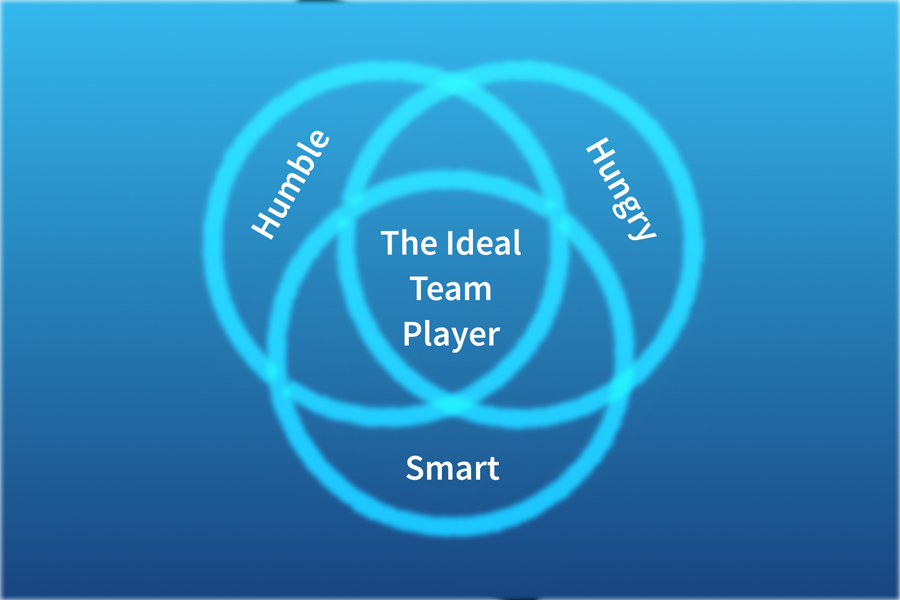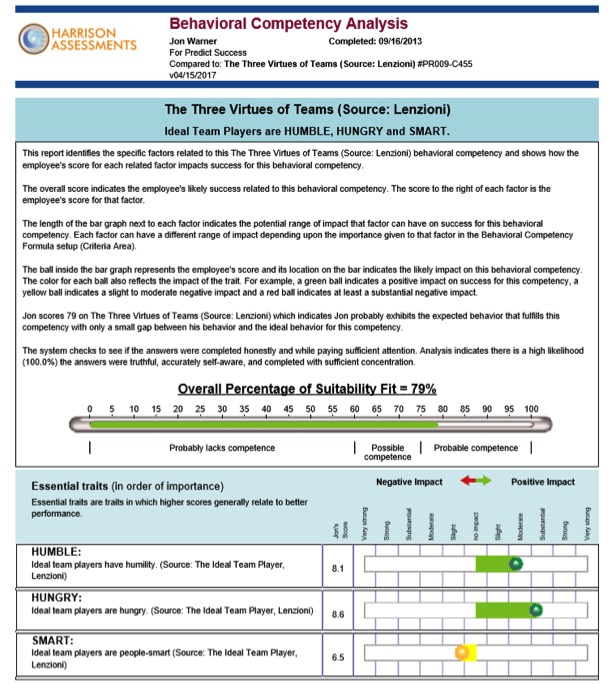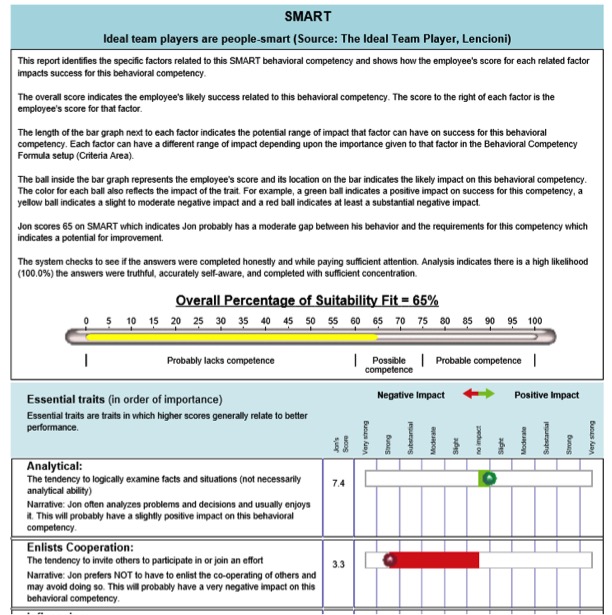Beyond Hungry, Humble, and Smart

Ideal Team-players
In 2016 Patrick Lencioni brought out the follow-up book to his The Five Dysfunctions of a Team, "The Ideal Team Player: How to Recognize and Cultivate the Three Essential Virtues" [1]. Ideal team players, as Lencioni describes them, are Hungry, Humble and (emotionally) Smart - these are his "3 Virtues." It is rare for people with only one of the three virtues to survive long in most organizational cultures. But sometimes, people with two of the three can exist and wreak havoc on teams. And, when we look at our teams through this particular lens, we uncover interesting insights into potential hires, people already on our teams, or even ourselves.
Consider the employee who is Humble and Hungry, but not Smart. The risk here is that they make "accidental messes" because they don't understand other people (or their own effect on other people) well enough.
Consider the person who is Humble and Smart, but not Hungry - think of this person as the "loveable slacker." No one wants to fire this person but perhaps they really should.
And then there is the Hungry and Smart people who lacks Humility. This is the "skillful politician" who is out for him or herself and continually de-rails effective teamwork.
How can I measure the 3 Virtues?
Lencioni's book helps us better understand the nuances of each of the virtues and how to spot virtuous behavior in all three categories. It also outlines actions that can be taken by leaders and HR professionals to build better teamwork in each of the three virtues. But, wouldn't it be great if we could find other ways to measure great potential for teamwork in individuals and teams?
We can measure these virtues. The Harrison Assessment, because it is a deep and flexible assessment system, can be used to identify all three of these team virtues (and countless other theories and frameworks) to ensure a successful hire or develop stronger teams internally. Mapping to the 3 Virtues is relatively easy to do with the customization features in the Harrison Assessment system.
Humble
First, let's examine the characteristics that make-up the first of the three virtues: Humble. According to Lencioni, Humble team-players...
- Lack excessive ego or concerns about status
- Are quick to point out the contributions of others and slow to seek attention of their own
- Share credit, emphasize team over self and define success collectively rather than individually
- Are not afraid to honestly acknowledge the skills and talents they bring to the team, though never in a proud or boastful way
Harrison Assessment: Essential, Desirable, and Traits-to-Avoid
The Harrison allows us to map each of the three virtues to create a Custom Behavioral Competency which for Humble, includes Essential Traits (those most critical for success) such as:
- Open-mindedness / active listening
- Learning mindset / hunger for feedback
- Collaboration in the decision-making process
Then, Desirable traits are added to guard against low preference/scores for traits that get in the way of humility, such as:
- Team-first mindset
- Wants to help others and be of-service
- Motivated by "doing good"
- Transparent communicator
- Self-accepting
- Warm and empathetic

Finally, Traits-to-avoid are added to flag potential counter-productive tendencies that would interfere with humility, such as:
- An aggressive or overly blunt communication style
- Overly opinionated, or dogmatic
- Controlling / authoritarian
- Defensive / doesn't welcome feedback
Master Custom Behavioral Competency
The process described above for Humble was followed for Hungry and Smart and an overall Custom Behavioral Competency was created for each. Each of the 3 Virtues has a sub-report (custom behavioral competency) that can be run to see an individual's scores on the traits that make up each virtue.
In this case, this individual has high and positive scores on the first two virtues, or custom behavioral competencies, Humble and Hungry. However, he scores lower - as indicated by the YELLOW, or cautionary, bar next to the Smart virtue, or competency. Given this result, we might want to drill-down further into the Smart report and find out what is driving this result.

In the Smart report above, one result that is affecting this person's score against this virtue is a trait called Enlists Cooperation. Enlisting others' cooperation is part of the formula underpinning the Smart virtue because emotional intelligence (which is part of Smart) depends upon getting others on-board and involved with your ideas and initiatives. Low behavioral preference for enlisting others' cooperation could seriously jeopardize teamwork.
What do scores mean?
Where scores are low, individuals have the opportunity to increase their self-awareness of how their own behavioral tendencies may be limiting their effectiveness (e.g. threatening the ideal team player formula). For example, in the result above, this person may not have fully understood that his low preference for enlisting others' cooperation could be standing in his way of greater effectiveness as a team player. Using the Harrison Assessment, he has the chance to look at himself in new and different ways and only then can he take the next step of the developmental journey - decide if he wants to change and HOW to start this process.
Change is possible
Assessments like the Harrison offer individuals' greater choice. Behavior is often difficult to change, to be sure, but without a tool or a system that detects many individual personal preferences, it is virtually impossible to reflect upon our own "blind spots" and make informed decisions that can make us happier, more productive and enlightened human beings. Leaders who aspire to attract, engage and retain Humble, Hungry and Smart employees also need a system or method to hold up a mirror, take a deep breath, and see what is really there.
_________________________________
[1] The Ideal Team Player: How to Recognize and Cultivate the Three Essential Virtues Hardcover (2016), by Patrick Lencioni
Recent Posts
- Aligning Employee Aspirations with Corporate Objectives
- Why Feedback Skills Need To Be Stellar For Remote Leadership
- The Brandon Hall Group Excellence in Technology Awards - Harrison Assessments wins Silver
- Two Powerful Communication Strategies Effective Leaders Use To Engage Employees
- How to Measure the ROI of a Training Program
Recent Tags
AttractionBad Hire
Best Practices
Choosing An Assessment
Communication
Continuous Improvement
Culture Fit
Decision Analytics
Delegation
Derailers
Eligibility
Employee Engagement
Enjoyment-Performance Theory
Entrepreneur
Hire Right
HR Tech
Innovation
Job-Relatedness
Job Success Functions
Job Suitability
Leadership
Manager-Employee Fit
Organizational Psychology
Paradox Report
Paradox Theory
Predictive Assessment
Reliability
Retention
Return on Investment
Stress
Succession Planning
Suitability
Suitability Factors
Suitability Theory
Talent Development
Talent War
Team Building
Team Dynamics




